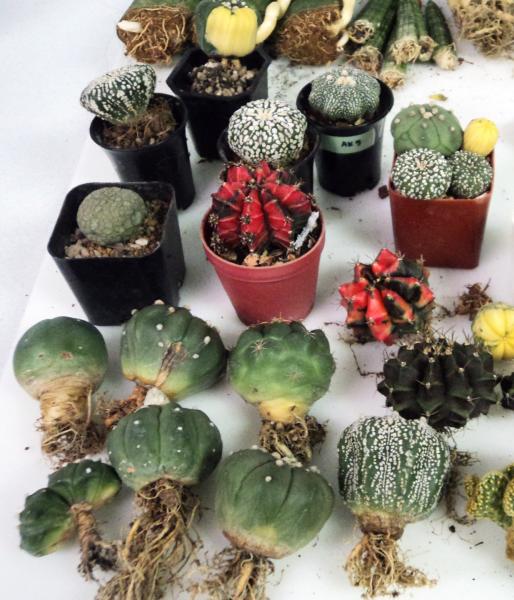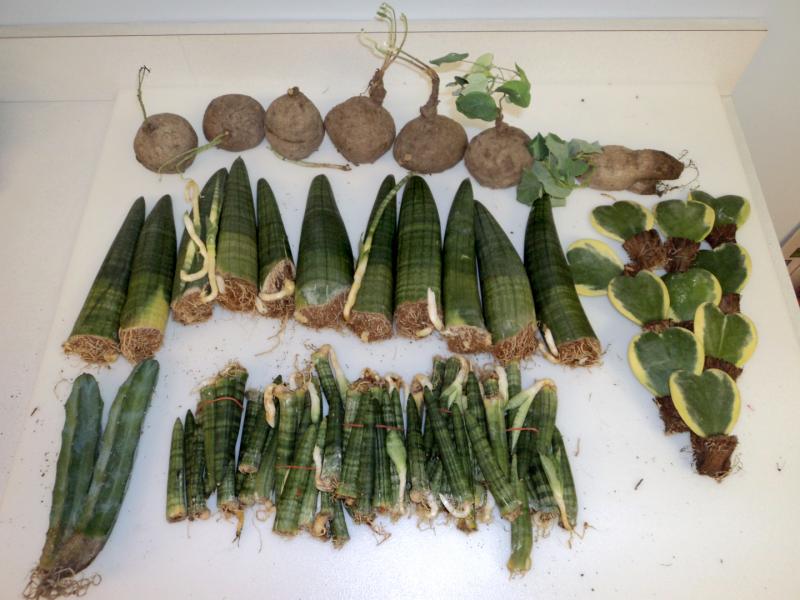STERLING, Va., – U.S. Customs and Border Protection agriculture specialists seized 165 cactus plants, succulents and peyote plants, all with root systems at Washington Dulles International Airport recently.

shipped from Thailand to multiple
addresses in the U.S.
CBP officers initially inspected two shipments that arrived from Thailand by express air delivery services July 10 and July 13. The shipments were manifested as fabrics, but inside, officers discovered 58 live plants in one shipment, including the six peyote plants, and 107 live plants in the second shipment. All plants had roots, and were packaged and labeled for distribution throughout the United States.
Officers alerted CBP agriculture specialists who determined that neither shipment included U.S. Department of Agriculture permits or phytosanitary certificates required for importing plants.
CBP submitted the live cactus plants to the USDA Plant Inspection Station in Atlanta for identification and/or quarantine. USDA identified the plants as Astrophytum asterias, Discocactus sp., Obregonia denegrii, Acanthocereus tetragonus, Gymnocalycium anisitsii, and Mammallaria elongata.
CBP agriculture specialists consulted with U.S. Fish and Wildlife Service inspectors who reported that many of the 159 cacti and succulents were subject to the Convention on International Trade in Endangered Species of Wild Fauna and Flora (CITES) restrictions.
Additionally, the live peyote plants (Lophophora williamsii) tested positive for the presence of mescaline, which the DEA classifies as a Schedule 1 drug.

under CITES conventions.
“This seizure illustrates the essential and thorough Customs and Border Protection import inspections to detect illicit international trade practices that threaten our nation’s economy and natural resources,” said Casey Durst, CBP’s Director of Field Operations in Baltimore. “CBP agriculture specialists face a very complex and challenging task to protect our nation’s agricultural and economic security and they meet that challenge with extraordinary commitment and vigilance.”
CBP seized all plants. The USDA and USFWS generally attempt to place the endangered and protected plants with a plant rescue where possible and after the plants are cleared of pests and diseases.
An investigation continues.
The agricultural threats posed by soil saturated plant root systems are insect hitchhikers, and pathogens (bacteria, viruses, and fungi that cause plant disease), nematodes, and other organisms that could threaten native plants and crops.
CBP agriculture specialists are charged with the challenging task of safeguarding our nation’s agricultural resources by examining international trade shipments and traveler baggage every day for invasive insects, federal noxious weeds, and plant and animal diseases. They have extensive training and experience in the biological sciences and agricultural inspection.
During a typical day last year, CBP agriculture specialists across the nation seized 4,695 prohibited plant, meat, animal byproducts, and soil, and intercepted 314 insect pests at U.S. ports of entry. See what else CBP achieved on a typical day during 2019.
Visit CBP Ports of Entry to learn more about how CBP’s Office of Field Operations secures our nation’s borders.

